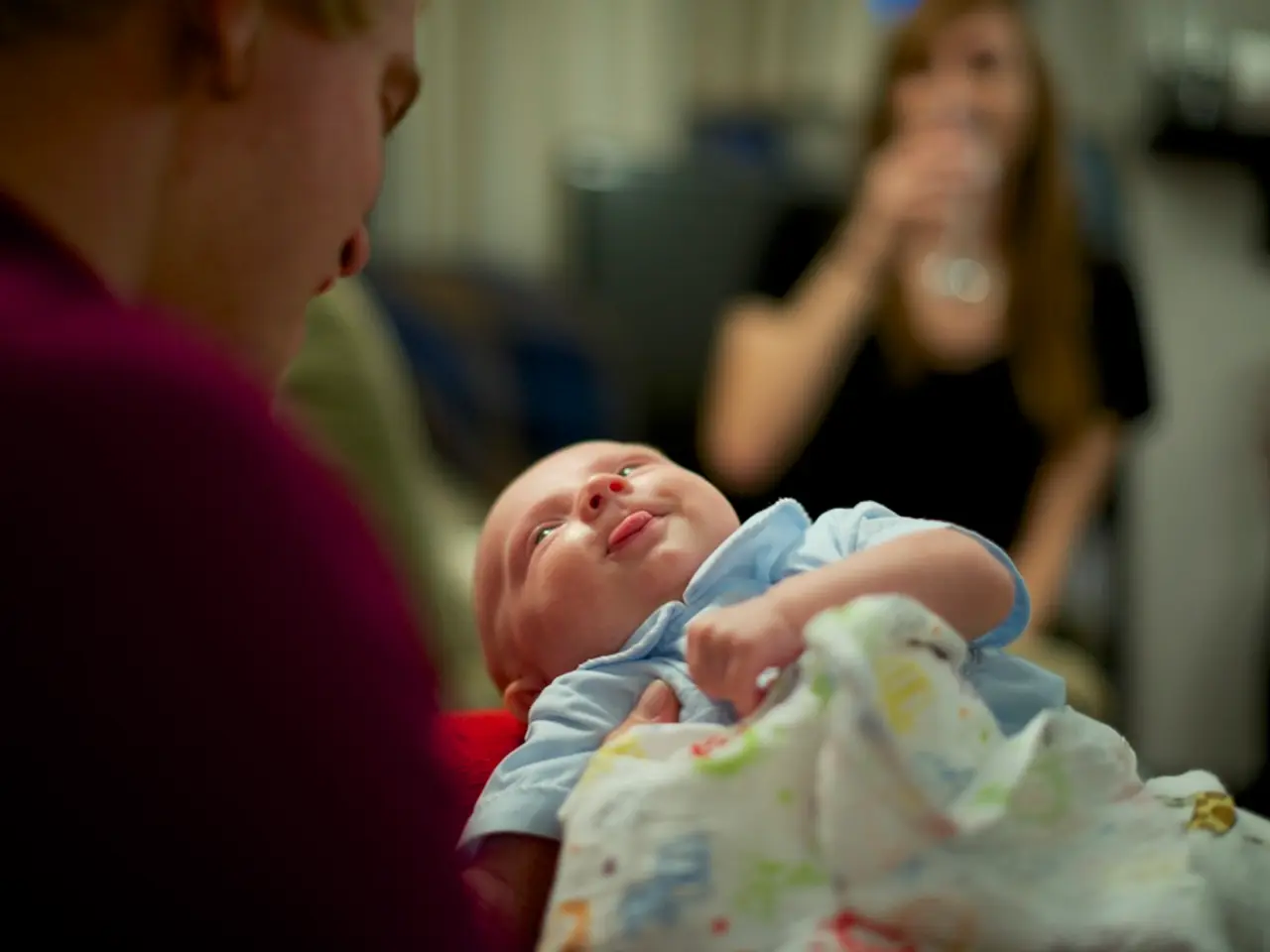Families in crisis: prolonged absence of fathers sparking little public reaction
In the popular German reality show "The Bachelor," contestants like Fiona Erdmann and Martin Braun often find themselves away from their families for extended periods. However, there is no information available about who takes care of their children during their participation in the show. RTL, the show's broadcaster, has not responded to inquiries regarding the care and communication of candidates with their children during filming, or the consideration of their family situation in production.
Fiona Erdmann, a model, influencer, and businesswoman, is no stranger to the challenges of balancing a successful career with family life. She values her professional role for its positive impact on her self-esteem, but faces criticism for her pursuits as a working mother. Erdmann uses her Instagram channel to show other mothers that it is possible to be successful while also being there for their families.
Sociologist Natalie Stanczak explains that today's mothers are expected to juggle multiple roles - job, children, and partnership. This expectation, she says, is closely linked to a societalization that can be described as neoliberal or capitalist. Mothers often face harsh criticism for balancing career and family, especially on social media.
The prolonged absence of a mother might receive more attention than that of a father, a disparity that Sociologist Stanczak attributes to deeply rooted societal norms. Fathers are seen as having work as a socially legitimate absence, while mothers are defined by their caregiving role. This expectation can lead to overload and increasing pressure to be perfect in all areas, both as a mother and as a professional woman.
To overcome these consolidated structures, a reevaluation of expectations for mothers and fathers is needed for parents, regardless of gender, to reconcile their professional and family responsibilities without constant pressure and societal judgments. Erdmann believes that the reconciliation of family and work is hardly possible without a supportive team, including family members and a professional team.
Germany lags behind other countries in the provision of childcare places and genuine family-friendly structures compared to other countries. This lack of support can intensify the pressure on working mothers, making it even more challenging for them to balance their roles.
Despite some progress in gender equality, there are still clear differences in society regarding the reconciliation of family and work. Erdmann remains undeterred by social media criticism, stating that it only shows a fraction of her life. She sees social media as providing a platform for mothers to show the reconciliation of work and family, but also intensifying the pressure on them to constantly justify themselves.
Two fathers on "The Bachelor" have children that are not being cared for during the show's duration, raising questions about the show's consideration of its contestants' family situations. As the debate around gender roles and family-friendly structures continues, figures like Fiona Erdmann serve as a reminder of the challenges faced by working mothers and the need for societal change.








